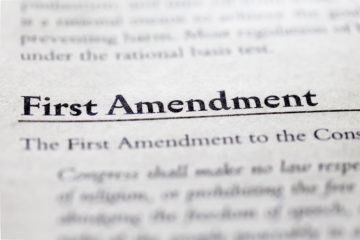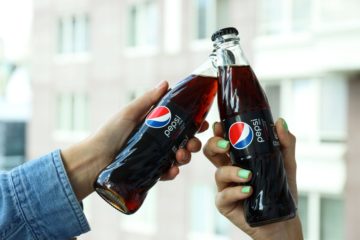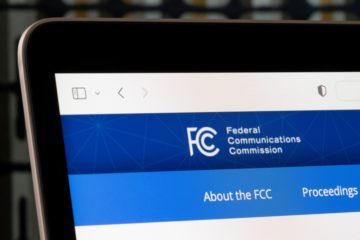As advocates for free-market principles, it’s imperative to scrutinize the actions of regulatory bodies like the Federal Trade Commission (FTC), especially when they intervene in corporate mergers. A recent article by Market Institute Senior Fellow Norm Singleton challenges the FTC’s decision to block the merger between Kroger and Albertsons, two major players in the grocery industry.
He writes:
“Judging by the press release announcing the Federal Trade Commission’s lawsuit seeking to block the merger of major grocery store conglomerates Kroger and Albertsons, Federal Trade Commission (FTC) Chair Lina Khan took this old legal saying to heart: “if the law is on your side, argue the law. If the facts are on your side, argue the facts. If neither the law or the facts are on your side, pound the table.” The FTC’s press release is short on facts and the law, but long on table pounding.
Economist, author, and policy expert Tim Kane ran the FTC’s press release through the artificial intelligence app credAIble.com. CredAIble found the FTC’s case against the merger rested on three logical fallacies: false cause, slippery slope, and appeal to emotion. The agency commits the false cause fallacy when it claims the merger will increase prices while decreasing quality. This argument ignores the fact that grocery prices have been in an upward swing the past several years, rising by 11.4% in 2022 and an additional 5% in 2023. The FTC commits the slippery slope fallacy, which, as the name suggests, is when someone argues against an action with unsubstantiated claims that it will inevitably lead to a series of unaffordable negative consequences, when it says higher prices, less choices for consumers, lower wages and poor working conditions for grocery store employees are the inevitable results of the merger.
Finally, the press release invokes the appeal to emotion by simply presenting a parade of horrors that will result from the merger without making any effort to substantiate their claims with facts and reason. The reason the FTC has to rely on logical fallacies to make the case against the Kroger-Albertsons merger is because the facts simply do not support the agency’s argument that the merger will harm competition. Instead, a dispassionate analysis of the facts suggests the merger may actually strengthen competition! If Kroger and Albertsons were allowed to merge, they would control a mere 13% of the grocery store market. In contrast Wal-Mart, controls (and would still control even if the Kroger-Albertsons merger completed) 22% of the market.
Merging may be Kroger and Albertsons’ best chance to remain competitive in a changing market where consumers have options beyond the traditional grocery store. Kroger and Albertsons are not just competing with Wal-Mart and Costco, but with other grocery store chains, convenience stores, restaurants (including fast food options that have broadened beyond the burgers and fries), and farmers’ markets.
If the FTC succeeds in blocking the merger, Kroger and Albertsons will be unable to take advantage of economies of scale to enhance their competitiveness. This means Kroger will scrap their plan to invest $500 million into lowering prices if the merger is blocked. After all, the likely reason Kroger wants to make this investment is that the merger will enable these stores to operate more efficiently, and thus cut prices without harming profits. Without these improvements, the grocery stores owned by Kroger and Albertsons will begin losing money and eventually lay off workers.
This is not the first time that those charged with enforcing antitrust laws have disregarded facts and logic in order to block a merger. For example, Amazon recently withdrew its planned purchase of iRobot because it was clear the deal would not receive regulatory approval from European regulators. The EU antitrust regulators have admitted they “consulted” with the FTC on the case. Following withdrawal for the deal, iRobot laid off a third of its staff, and the failure of the merger affected workers and consumers- and made the market less competitive.”


